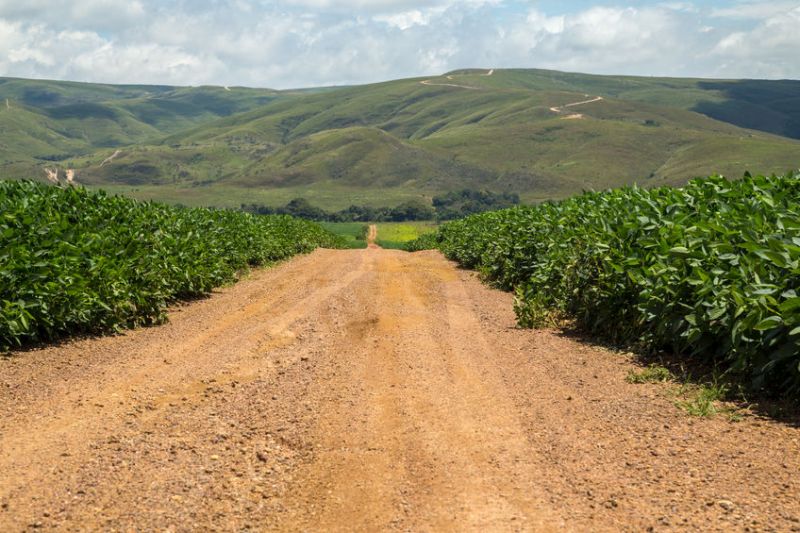UK pig sector to 'reduce use of soya where possible'

The UK pig sector will continue to reduce its use of soya where possible and research other protein sources, a leading industry body said.
Over the past decade the sector has halved the inclusion of soya in pig diets from 20 percent to just under 10%.
Pig producers are increasingly substituting soya for rapemeal, peas, beans and distillers waste as sources of crude protein.
It is estimated that the UK imports 3.2 million tonnes of soya bean equivalents annually, in the form of soya beans, soya bean meal and oil, of which 68% is sourced from South America.
Soybean products are efficient sources of protein for pigs as their amino acid profiles complement those of cereal grains.
It is estimated that, in the European Union, 90 percent of all soya, both imported and grown, is used to feed livestock.
But soya is still the most efficient source of protein and by far the cheapest, according to the National Pig Association (NPA).
Currently, alternative protein sources are not economically or practically feasible, it said.
The industry group added that it is incumbent on the entire supply chain to try to deliver commitments on sustainably sourced soya.
“The industry continues to research other protein sources and will endeavour to reduce its use of soya where possible,” the group said in an online briefing.
“The industry already uses 1.23m tonnes a year of co and by-product from the human food chain which accounts for 43.9% of total pig feed produced; notably rapemeal, wheatfeed, biscuitmeal, cake, bread, cereal products, starch extraction products and whey.
“If these foods were not used by the pig industry they would, in the main, go to landfill or anaerobic digestion.
“Retailers must not simply dictate to their supply chain with the expectation that they will be able to comply with their demands at no extra cost,” the briefing stressed.
The NPA also said that it is incorrect to associate European feed industry use of soybean meal with the Amazonian forest fires.
European feed companies do not source soya from land deforested after 2008 from the Amazon Biome as it is excluded, due to the Amazon Soy Moratorium (ASM).
The ASM was developed in 2006, with the support of FEFAC, traders and the NGO community and is still in effect today.
It is estimated that as of October 2019, 27% of soya consumed in the UK was covered by a deforestation and conversion free soya standard.
This is a significant increase (12%) from the baseline report (2018), which showed only 15% of soya was covered by a deforestation and conversion free standard.
The NPA is a member of the UK Roundtable on Sustainable Soya, which was established in 2018.








